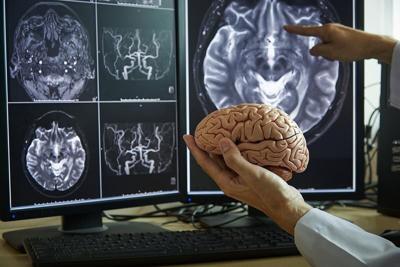Key Takeaways
Scientists identified four major ages when brain rewiring occurs
Researchers said brain development isn’t one linear progression, it changes in stages
These shifts may help explain when mental health conditions begin
WEDNESDAY, Nov. 26, 2025 (HealthDay News) — From childhood to old age, the human brain doesn’t just slowly fade or steadily grow, it changes in stages.
A new study suggests our brains go through four major turning points that shape how we think, learn and connect.
Researchers said those shifts happen around the ages of 9, 32, 66 and 83.
The findings, published Nov. 25 in the journal Nature Communications, show that brain development isn’t a straight path. Instead, it moves through different “epochs,” or stages, where the brain’s network of connections is rewired in unique ways.
"It’s not a linear progression," Alexa Mousley, a postdoctoral researcher at the University of Cambridge and lead author of the study, told NBC News. "This is the first step of understanding the way the brain’s changing fluctuates based on age."
The team analyzed MRI brain scans from about 3,800 people, from newborn babies to adults up to 90 years old.
These scans track how water moves along the brain, helping researchers map how different parts of the brain are connected.
Here’s what they found:
Birth to age 9: The brain rapidly increases in gray and white matter.
Ages 9 to 32: The brain goes through an extended period of rewiring, where rapid communication happens and strong connections are made between different regions. It’s also when many mental health disorders are first diagnosed.
Ages 32 to 66: The brain mostly stabilizes. It still changes, but more slowly and less dramatically.
Ages 66 to 83: Brain regions start working more independently.
After 83: The brain's connectivity declines more sharply.
The second stage (ages 9 to 32) is important, researchers said.
"Is there something about this second era of life, as we find it, that could lead people to be more vulnerable to the onset of mental health disorders?" Mousely explained.
But some experts remain cautious about the study results.
"They did this really ambitious thing,” Rick Betzel, a neuroscience professor at the University of Minnesota who was not involved in the study, told NBC News. “Let’s see where it stands in a few years."
He noted that the study pulled together data from nine different data sets, which can vary in quality and methods. Combining them may introduce bias.
He added that in a perfect world, the same group of people would be scanned every year from birth to death, but that isn’t possible because the technology hasn’t existed long enough.
"Brain networks change over the lifespan — absolutely. Is it discrete such that there are five exact change points? I’d say stay tuned. It’s an interesting idea."
More information
BrainFacts has more on how the brain changes with age.
SOURCE: NBC News, Nov. 25, 2025
What This Means For You
Your brain changes in stages as you age and each phase shapes how you think and feel.





















(0) comments
Welcome to the discussion.
Log In
Keep it Clean. Please avoid obscene, vulgar, lewd, racist or sexually-oriented language.
PLEASE TURN OFF YOUR CAPS LOCK.
Don't Threaten. Threats of harming another person will not be tolerated.
Be Truthful. Don't knowingly lie about anyone or anything.
Be Nice. No racism, sexism or any sort of -ism that is degrading to another person.
Be Proactive. Use the 'Report' link on each comment to let us know of abusive posts.
Share with Us. We'd love to hear eyewitness accounts, the history behind an article.